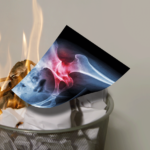Around 95% of primary care patients don’t need to be referred for imaging tests, says a leading NHMRC researcher.
Common misconceptions about the necessity of imaging tests among patients and clinicians are not only a huge financial drain on the healthcare system, but they’re also causing harm to patients, says a leading Australian epidemiologist.
Professor Rachelle Buchbinder, AO, senior principal research fellow at the NHMRC, was speaking to attendees at the PCHSS showcase: Future proofing healthcare conference, held in Sydney recently.
She referenced data showing an increase of millions of dollars in MBS items for CT back scans, MRIs and x-rays over the past eight years.
“The problem with this is everyone’s not even just getting a plain x-ray,” she said.
“Now we’re getting MRIs and CTs, [which] have a much bigger carbon footprint, so not only are we wasting millions of dollars on things that are unnecessary, and potentially harmful, we’re also damaging the planet.”
Using data from a national randomised clinical trial, Professor Buchbinder and her team identified 11 imaging tests that were largely over-used in general practice.
Collaborating with the federal government to send out letters to these GPs notifying them of this overuse, the researchers found that close to 50,000 fewer scans were performed over 18 months, translating to around $7m worth of MBS savings.
Professor Buchbinder said that while alternative models of care may have the potential to provide higher quality care for a lower cost, there was not enough evidence to prove this was the case.
“A lot of the models proposed to reduce inappropriate imaging by putting care, say, in the hands of physiotherapist, we found that there was little very little evidence of that, as well as those that very little evidence or any change really in our outcomes,” she said.
“So at best, we can say that it doesn’t change the quality of care, but we still have the same problem of low-value care.”
Alongside Professor Buchbinder, Bond University’s evidence-based medicine expert Professor Paul Glasziou discussed the harms that over-diagnosis is causing to patients across primary and specialist care sectors.
Based on a review of cancer registry data over a 40-year period, Professor Glasziou and his team found that overdiagnosis was the greatest contributor to low-value care within oncology, with around 18% of cancers in women and 24% in men being over-diagnosed nationwide due primarily to over-screening.
Prostate cancer was a particular area for concern, with around 41% of prostate cancers diagnosed in Australia are “overdiagnosis cancers” that never would have disturbed men in their lifetime.
Outside of oncology, Professor Glasziou also identified high rates of overdiagnosis of chronic kidney disease.
“There are said to be about seven million or nearly a third of the population who have chronic kidney disease,” he said.
“And I would say at least the majority, and maybe the vast majority of those are actually a bit like my mother-in-law, someone who’s just on a normal trajectory for their age.
“And we clearly need to be doing something to try and ameliorate the misinterpretation and overuse of our healthcare system with folk who are just pretty much normal for their age.”
To address this problem, he and his team trialled the effectiveness of age-based charts of kidney function in reframing GPs’ decisions regarding an older patient’s kidney function. They found 14% of GPs changed their opinion of the patient’s kidney function after viewing the chart.
According to Professor Glasziou, the charts are now being used by a number of specialists, including nephrologists, as well as being disseminated across general practices, with the aim of reducing rates of overdiagnosis of chronic kidney disease in older patients nationwide.
More details on Professor Buchbinder and Professor Glasziou’s research are available on the NHMRC Partnership Centre website.





